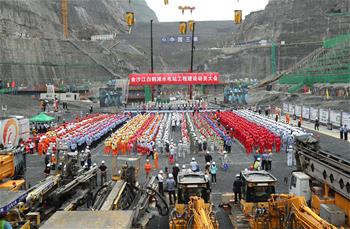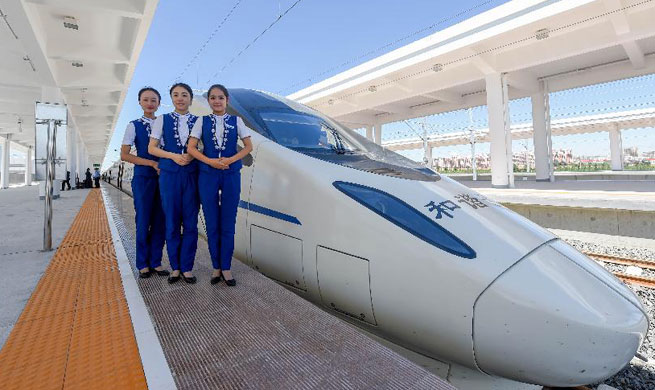RIO DE JANEIRO, Aug. 3 (Xinhua) -- Brazil needs to improve its business environment and have a more open structure to attract more Chinese investors, an experts panel concluded here Thursday.
The "1st Brazil-China Seminar -- Regulation and Legal Challenges for Chinese Companies and Investments in Brazil" was held in Rio, organized by the Getulio Vargas Foundation (FGV), a renowned governance and business think tank and college named after one of Brazil's most prominent presidents.
China is Brazil's leading trade partner with an increasing number of Chinese companies establishing branches in the South American country.
Representatives of some Chinese companies operating in Brazil described their main problems in the country, and discussed possible solutions with members of the business community, professors and diplomats from both countries to help advance Chinese investments in Brazil.
Wan Guangfeng, head of the Brazilian branch of oil giant China National Petroleum Corporation (CNPC), stressed the importance of the oil sector in Brazil, with the pre-salt reserves and a great potential for growth.
However, he pointed that some regulations have been posing obstacles for the development of the investments, such as the requirement for local content, which is widespread in the oil sector and the ill-organized regulation agencies.
In addition, he suggested that a tax reform may be beneficial for the development of the oil sector in particular.
Jia Yao, Administration Director at the Brazilian branch of China National Offshore Oil Corp (CNOOC), added that the country has the potential to be great with its territory, human resources and a good legal basis.
Floriano Azevedo, Law professor at FGV think tank in Rio de Janeiro, said that the business environment has experienced a lot of progress in the past two decades, but there is still much to go to build a more efficient and attractive environment for foreign companies and investors.
The required taxes and the bureaucracy to open a business are the main problems for a Chinese business seeking to invest in Brazil, said Li Tie, head of Chinese vehicle maker BYD's Brazilian branch.
In addition, he stressed that Brazil lacks tax incentives for green businesses, which would have been very encouraging and positive for such companies as BYD, which operates on clean energy and electric vehicles.
Brazil's current business environment is much too similar to that of China in the 1990s, Brazilian Consul to Rio de Janeiro Li Yang observed. Though Brazil produces a lot of industrialized goods, it rarely manages to be internationally competitive, which is unjust to local production.
"If Brazil wants to prosper and develop, the market structure needs to change," Consul Li said, adding that "Brazil is an important country, but if it does not dare to get up on the stage for the competition, it will never win."
Lastly, Carlos Ivan Simonsen Leal, president of the Getulio Vargas Foundation, a leading Brazilian University, stressed the importance of seeking deeper partnerships, and highlighted the necessity to acknowledge the cultural differences between Brazil and China.
Brazilians need to understand the business mentality of the Chinese and vice-versa. By knowing more about each other, he concluded, the two countries will prevent misunderstandings and achieve a deeper understanding in their relations.

















